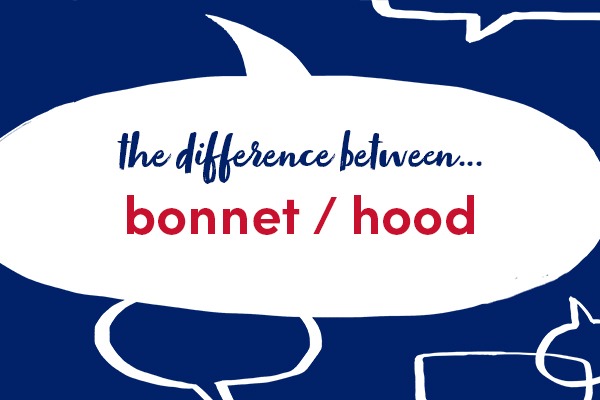This week we are looking at some words which can be used differently in British and American English: bonnet and hood.
bonnet

In British English, the metal cover over the engine of a car is called the bonnet.
I lifted the bonnet to see what the problem was.
In American English, it is called the hood.
I looked under the hood to watch the mechanic at work.
In American and British English, a bonnet is also a hat, which is usually tied under the chin and often frames the face. In the past, it was worn by women but now it is worn mostly by children.

hood

In British English, a hood is a part of the coat which you can pull up to cover your head. It is in the shape of a triangular bag attached to the neck of the coat at the back.
Find out more in our English Usage article.
This blogpost is based on Collins COBUILD English Usage, written for learners of English. For more examples of English usage points, please visit: https://grammar.collinsdictionary.com/english-usage.
All opinions expressed on this blog are those of the individual writers, and do not necessarily reflect the opinions or policies of Collins, or its parent company, HarperCollins.




collins_dictionary_official
The home of living language. #wotd #wordlovers #collinsdictionary
Read our word of the week definitions and blog posts: